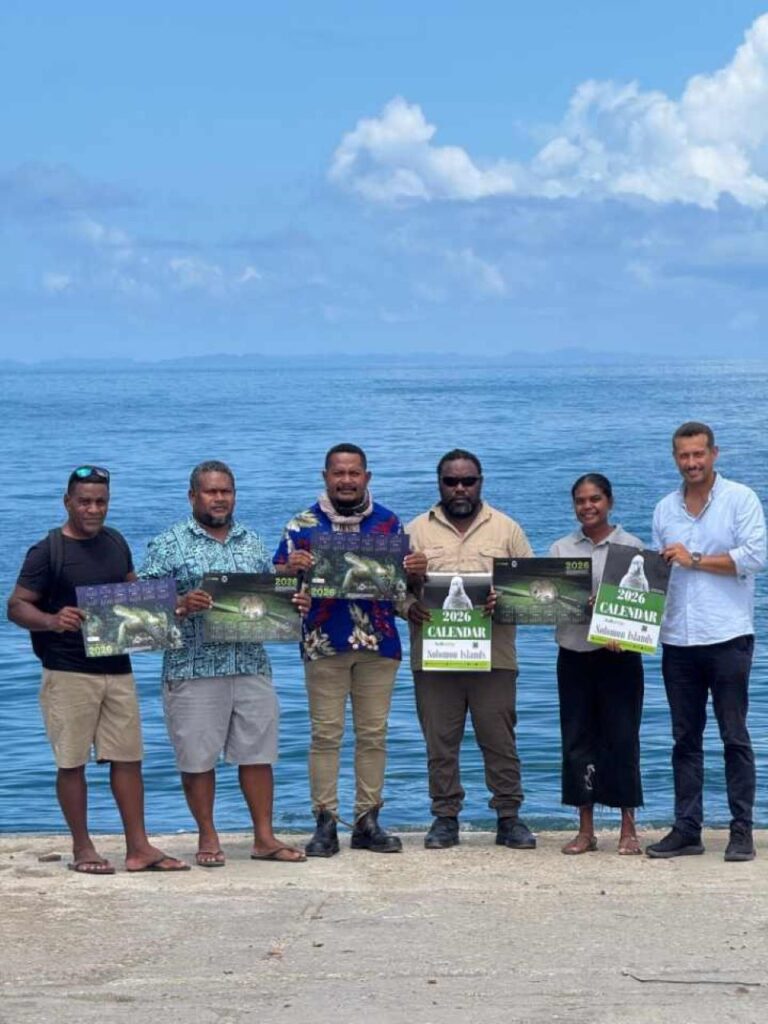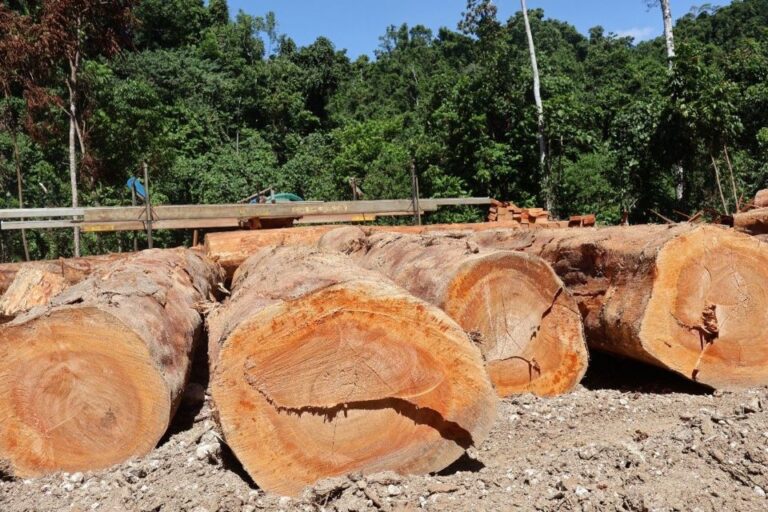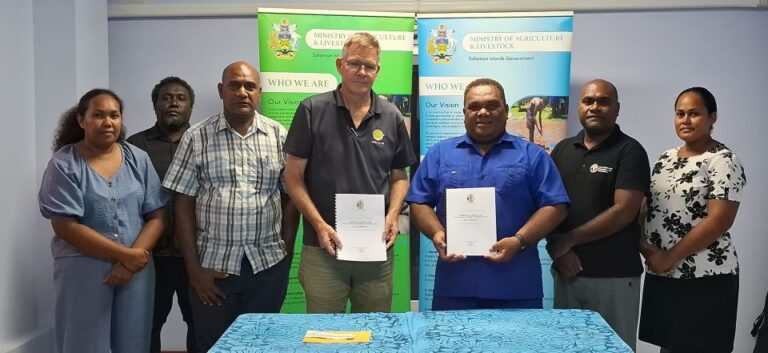Kastom cultures, traditions, and knowledge have an important role to play in addressing climate challenges.
Australia recently hosted Chief Esau Kekeubata and Professor Bradley Moggridge, in Honiara to share their kastom and Indigenous perspectives on climate change with Solomon Islands students and the public.
Chief Esau and Professor Moggridge visited Form 7 students at Honiara Senior High School, King George VI School and Betikama Adventist College and held a tok stori with local and international climate change practitioners.

They also delivered a public lecture at the Solomon Islands National University, chaired by Ms Millicent Barty from Kastom Keepers and introduced by Dr. Vaeno Vigulu, the Dean of the Faculty of Agriculture, Forestry and Fisheries.
Both speakers encouraged the young people of Solomon Islands to consider careers in science, and to be good custodians of the lands and seas where they live. They spoke about the ways in which traditional knowledge can help manage the impacts of climate change as well as how it can partner with modern science to protect the collective health of plants, animals and humans.
Chief Esau Kekeubata is the founder of the Baru Conservation Alliance in East Kwaio, Malaita and currently manages the Moo’u Program – a SBD10.5 million partnership with James Cook University and the Australian Government. The Baru Conservation Alliance’s goal is to preserve traditional knowledge and culture while improving community health and building climate resilience.

Professor Bradley Moggridge is an Aboriginal Australian and a proud Kamiloroi man (Kamiloroi are an Australian kastom group). He is the Dean of Indigenous Leadership and Engagement at the University of Technology Sydney with 25 years’ experience in water and environmental science.
Principal Augustine Omearo from King George VI School welcomed the visit and said “the session offered a unique perspective on climate change and helped the kids understand it through the lens of kastom culture.”
Chief Esau said “I was really pleased to have the opportunity to share my knowledge; Australia and Solomon Islands share views on this important topic and it’s good to have a balance between formal university education and traditional knowledge when discussing this topic.” Professor Moggridge said “the kids showed a real thirst for knowledge, and we hope they get inspired to make a difference.”

Australian High Commissioner to Solomon Islands, His Excellency Rod Hilton said “climate change is the problem of our time – whether it’s sea level rise, big storms, droughts, or floods. Its impact is felt in both Australia and Solomon Islands, but we are facing it together. This speaker series demonstrates that Solomon Islands and Australia have much to learn from each other as we tackle the challenges of climate change.”
Australia is bidding to host the United Nations’ international climate conference COP31 in 2026. If successful, this will be hosted with the Pacific, and Australia has been working with Pacific partners to identify priorities for COP31, which includes ensuring Indigenous voices are heard and enhanced at this international conference.
Source: Australian High Commission, Solomon Islands




